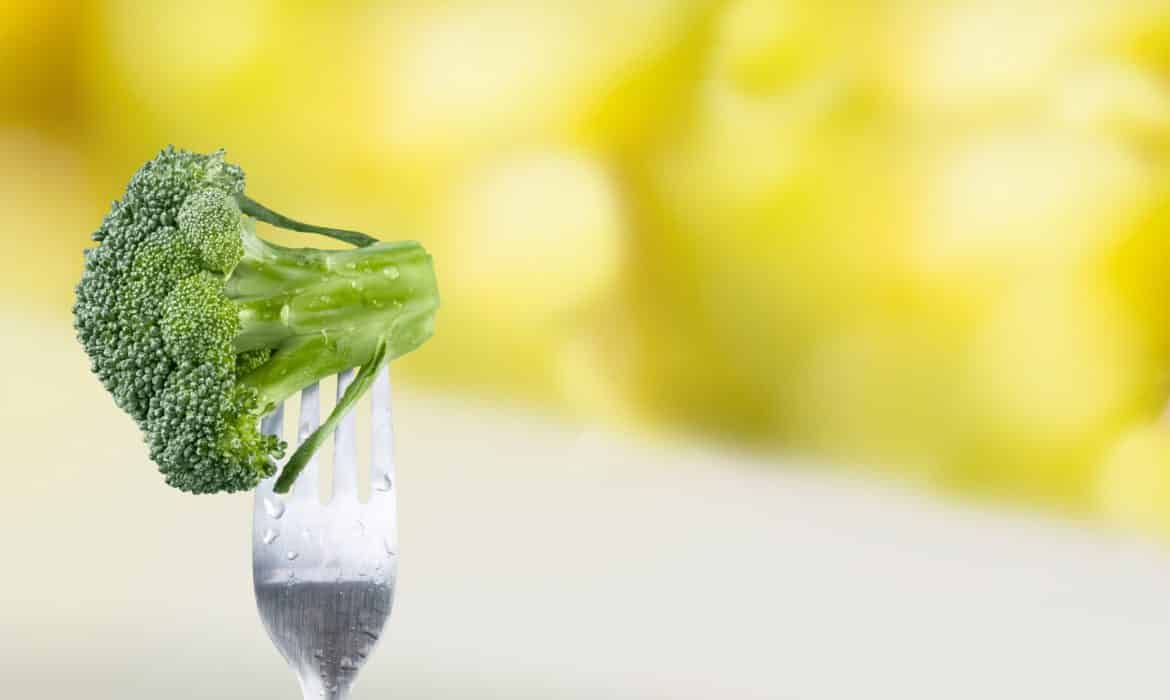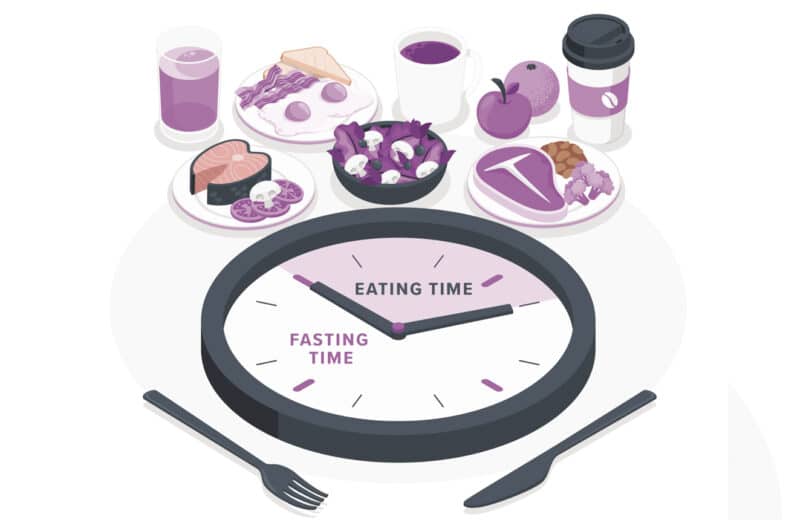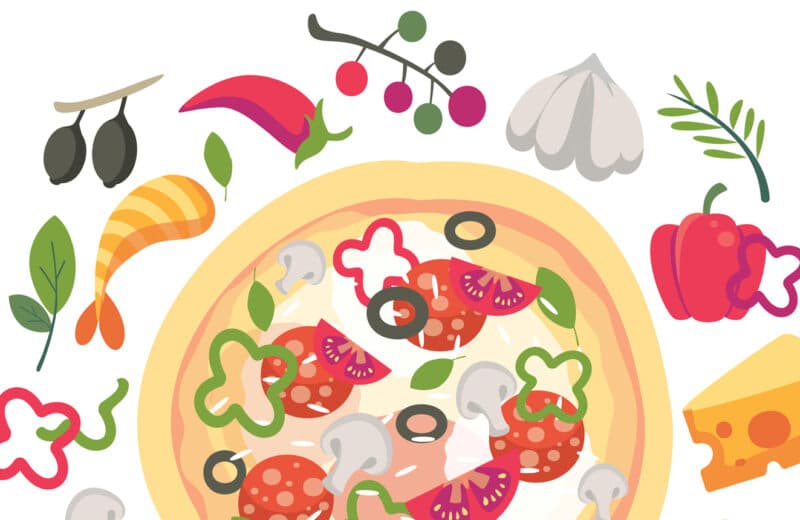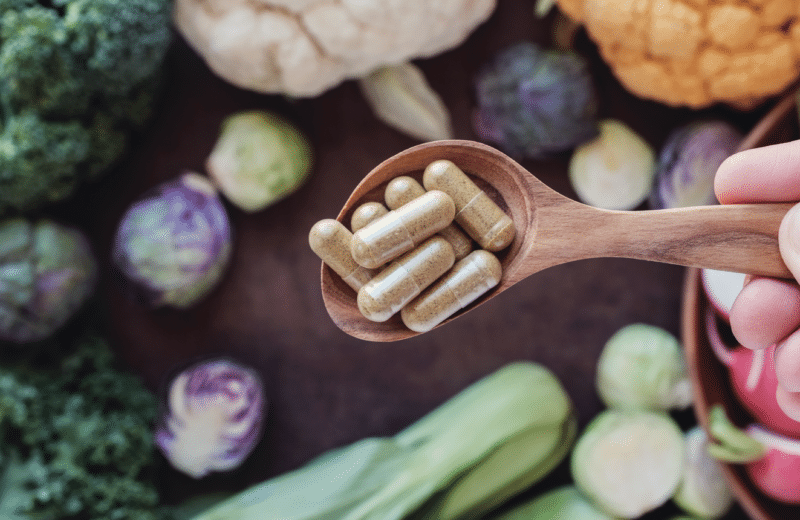By Carrie Dennett, M.P.H., R.D.N., Environmental Nutrition Newsletter
In the 4th Century BCE, the Greek physician Hippocrates authored the famous oath, “Let food be thy medicine and medicine be thy food.” We now know that foods like berries, green tea, and mushrooms are more than just a delicious source of energy; the nutrients inside can indeed be powerful medicine to help prevent and even manage disease.
Synergy in foods
Unlike drugs, foods are not isolated substances. Every food we eat contains a symphony of vitamins, minerals and phytochemicals (plant compounds that may reduce the risk of disease) that interact to help fend off disease.
“Without sufficient amounts of these nutrients, the body simply cannot operate at full capacity; our function is impaired and chronic disease can result,” says Mary Purdy, M.S., R.D.N., a private practice dietitian and adjunct clinical faculty member at Bastyr University in Seattle, WA.
Kathie Madonna Swift, M.S., R.D.N., L.D.N., education director of the Food As Medicine training program at the Saybrook University Center for Mind-Body Medicine, Oakland, Calif., and author of “The Swift Diet,” says that sunflower seeds are an example of a food that may help protect against Alzheimer’s disease.
“They contain the family of vitamin E compounds that are important for brain health. Popping a vitamin E pill does not afford the same protection–the whole food does it best,” she notes.
The power of dietary patterns
Numerous studies have identified dietary patterns that consistently decrease our risk for chronic disease. For example, diets high in fruits, vegetables, whole grains and other plant foods–such as the Mediterranean diet–are associated with a reduced risk of inflammation, cardiovascular disease and certain cancers.
When the 2015 Dietary Guidelines Advisory Committee looked at dietary patterns that prevent disease, the evidence consistently showed that diets rich in vegetables and fruits, such as Mediterranean and vegetarian diet patterns, are linked to lower rates of chronic disease.
Foods with medicinal benefits
While many plant foods have been linked with health, here are some of the most promising disease-busting foods you should include in your diet:
1. Berries. Blackberries, blueberries, raspberries and strawberries are a rich source of numerous phytochemicals that research suggests have a variety of positive effects on human health, including reducing chronic inflammation and cancer risk.
2. Broccoli. Broccoli and other cruciferous vegetables contain a number of phytonutrients that have been shown to reduce inflammation and oxidative stress, which has benefits for cardiovascular health, healthy blood sugar and cancer prevention.
3. Cinnamon. Swift cites cinnamon for its blood sugar-balancing attributes, even with just 1/2 teaspoon a day.
4. Cranberries. Research suggests that cranberries may prevent urinary tract infections, possibly because they prevent bacteria from adhering to cells inside the bladder. Opt for pure cranberry juice, rather than juices adulterated with other juices and sweeteners.
5. Fish. The omega-3 fatty acids in fish have anti-inflammatory properties. The American Heart Association recommends eating at least two 3.5-ounce servings of fatty fish each week, such as salmon or black cod, to help prevent cardiovascular disease.
6. Fermented foods. Swift and Purdy are both fans of fermented and cultured foods (yogurt, kefir, sauerkraut, kimchi, tempeh, and miso) to support digestive function and a healthy immune system.
7. Garlic. According to the American Institute for Cancer Research, there’s probable evidence that garlic and other members of the allium family (onions, leeks, shallots, scallions) reduce the risk of developing common cancers.
8. Ginger and turmeric. Swift likes these spice relatives for their anti-inflammatory and analgesic (pain-relieving) properties. Ginger also can help ease nausea and vomiting.
9. Green tea. The phytochemical EGCG (epigallocatechin gallate) in green tea has been shown to have some anti-cancer and anti-inflammatory effects, and may have heart health benefits. Swift points out that its antioxidant quality also may help protect the skin from sun damage.
10. Shiitake mushrooms. In human studies, shiitakes have demonstrated anti-cancer, immune boosting, and cholesterol-lowering properties.
11. Nuts. “Numerous studies have shown nuts to be helpful for cardiovascular function and healthy blood sugar and weight levels,” Purdy says. “Plus, they are super transportable and can be thrown into just about everything, from yogurt, smoothies, and cereals to salads, soups, and stir fries.”
Nutrients combat disease
One of the first confirmations of food as medicine came in the 1700s with the observation that sailors who ate citrus fruit were able to avoid scurvy. That connection led to the discovery of vitamin C (scurvy is caused by vitamin C deficiency) some 200 years later, ushering in an era of discovery about connections between nutrients and diseases
Gene-diet interactions
The mapping of the human genome has opened the door to personalized nutrition, which someday may move us from “you are what you eat” to “how to eat for who you are.” The emerging field of nutrigenomics looks at the connection between our genes, the nutrients in the foods we eat, and our health.
“Food contains a unique portfolio of bioactive ingredients that inform our genes to express health,” says Swift. In other words, if compounds in broccoli can stop a cancer-promoting gene from expressing itself, eating lots of broccoli may be truly “medicinal” for people with that gene.
(Reprinted with permission from Environmental Nutrition, a monthly publication of Belvoir Media Group, LLC. 800-829-5384. www.EnvironmentalNutrition.com.)













